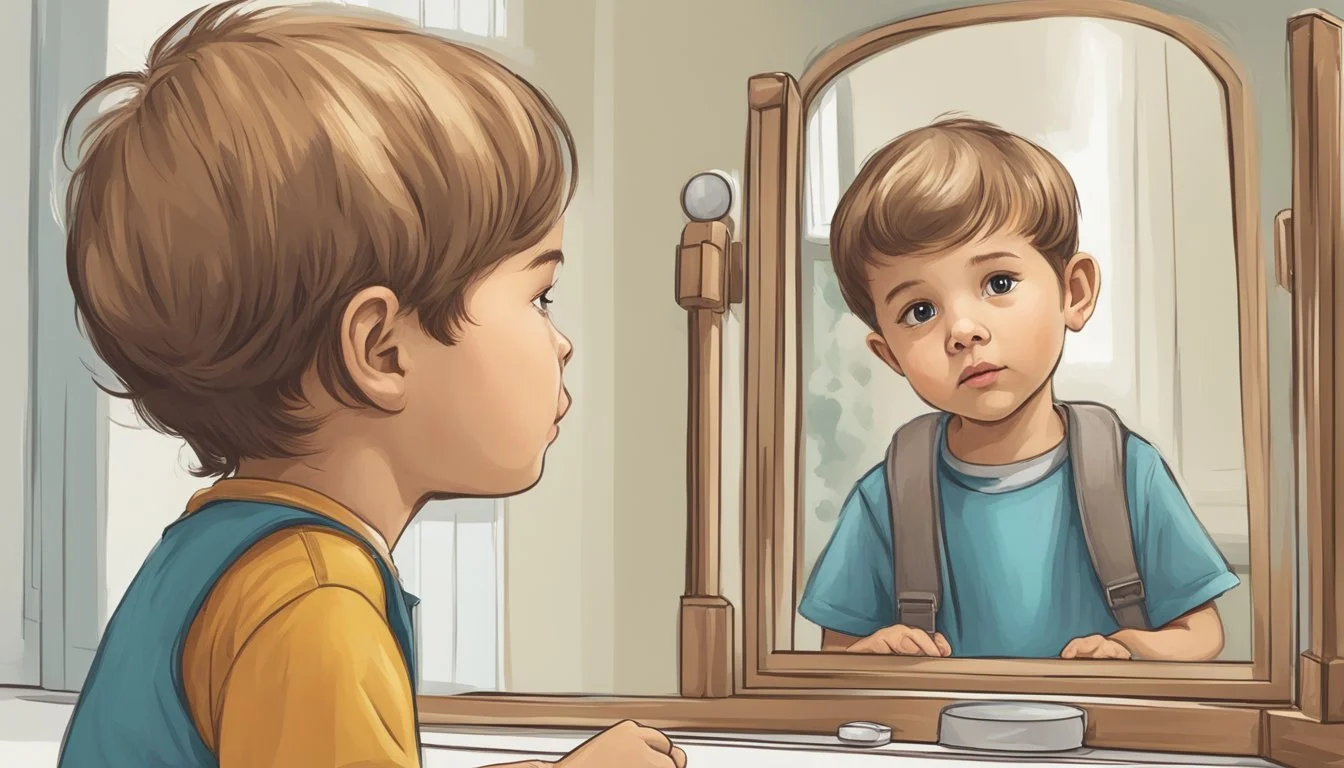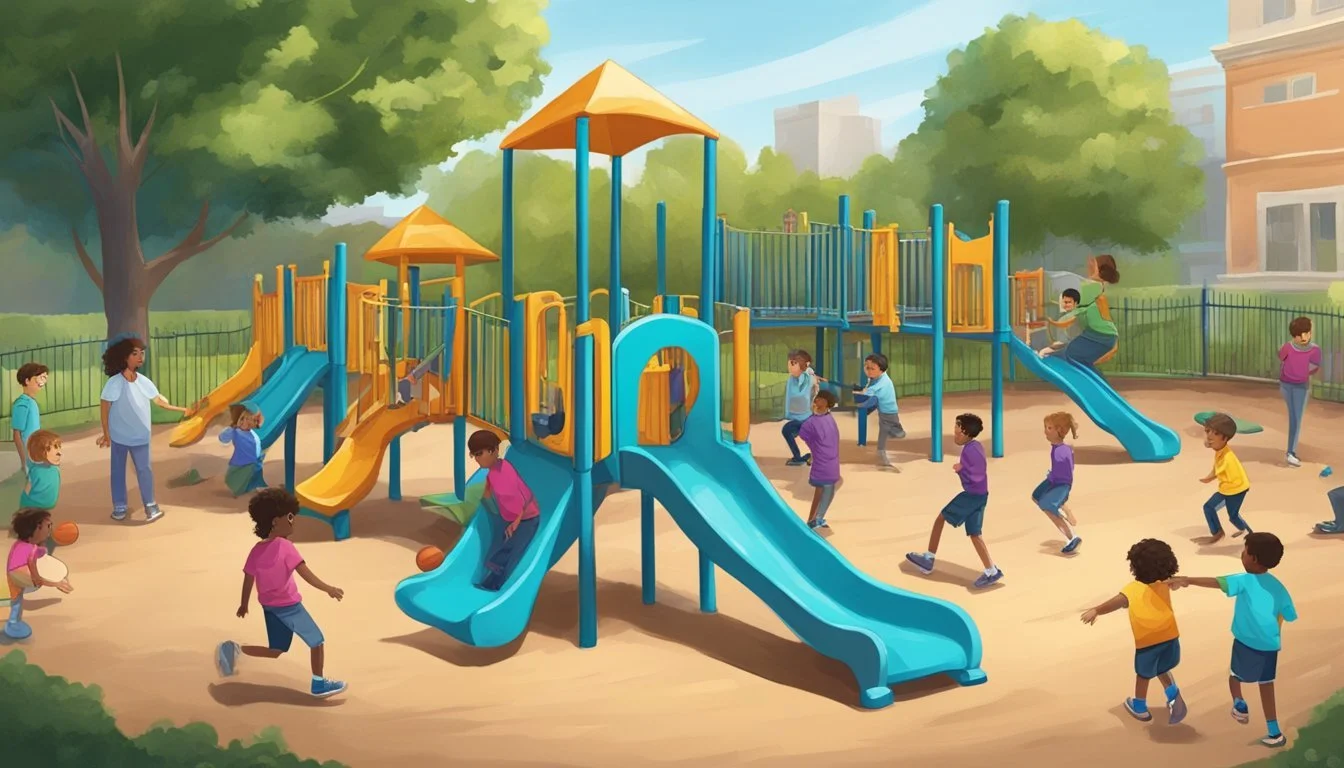Identifying a Narcissistic 8 Year Old: Signs and Support for Parents
Narcissism in children can be a complex and concerning issue for parents and caregivers. While it's normal for young children to be self-centered, some may display more pronounced narcissistic traits that persist as they grow older. An 8-year-old exhibiting narcissistic behaviors may struggle with empathy, have an inflated sense of self-importance, and expect constant praise and admiration from others.
Child development experts emphasize that narcissistic traits in children do not necessarily indicate a personality disorder, as personality is still forming at this age. However, recognizing these behaviors early can help parents and educators address underlying issues and guide the child towards healthier social and emotional development.
Understanding the signs of narcissism in 8-year-olds is crucial for providing appropriate support and intervention. These may include difficulty handling criticism, a lack of concern for others' feelings, and a sense of entitlement. By identifying these traits, adults can work with the child to develop empathy, improve social skills, and foster a more balanced self-image.
Understanding Narcissism in Children
Narcissism in children can manifest as a range of behaviors that go beyond typical developmental self-centeredness. It's important to recognize the signs early and distinguish them from normal childhood egocentrism.
Defining Child Narcissism
Child narcissism refers to a pattern of grandiose self-perception, lack of empathy, and need for admiration. These traits exceed normal childhood self-focus and persist over time.
Narcissistic children often display an inflated sense of self-importance and believe they are superior to others. They may have difficulty accepting criticism and show little concern for others' feelings.
Experts caution against labeling children as narcissists too quickly, as some behaviors can be part of normal development. Persistent patterns are key to identification.
Childhood Narcissism vs. Normal Development
Young children naturally focus on themselves as they learn about the world. This self-centeredness typically decreases as they grow and develop empathy.
Narcissistic traits become concerning when they interfere with a child's social relationships and emotional growth. Unlike typical development, narcissistic children struggle to outgrow their self-focus.
Key differences include:
Persistent grandiosity beyond age-appropriate levels
Lack of empathy development over time
Extreme difficulty handling criticism or disappointment
Consistent manipulation of others for personal gain
Early Signs and Symptoms
Recognizing early warning signs can help parents and caregivers seek appropriate support. Common symptoms of narcissism in children include:
Exaggerated sense of self-importance
Preoccupation with fantasies of unlimited success or power
Belief in their own uniqueness or superiority
Excessive need for admiration
Sense of entitlement
Exploitation of others
Lack of empathy
Envy of others or belief that others are envious of them
Arrogant behaviors or attitudes
These traits often become more apparent in social situations or when the child faces challenges. Early intervention can help address these behaviors and promote healthier emotional development.
Psychological and Environmental Factors
Multiple elements shape narcissistic tendencies in 8-year-olds. Family dynamics, traumatic experiences, and social interactions all play crucial roles in the development of narcissistic traits during childhood.
The Role of Parenting Styles
Certain parenting approaches can contribute to narcissistic behaviors in children. Overindulgent parents who constantly praise their child may inadvertently foster an inflated sense of self-importance.
Conversely, neglectful parenting can lead children to develop narcissistic traits as a coping mechanism. These children may seek attention and admiration to compensate for a lack of parental warmth.
Authoritarian parenting styles can also impact narcissistic development. Strict, controlling parents may cause children to rebel by becoming overly self-focused or developing grandiose fantasies.
Impact of Narcissistic Parents
Children of narcissistic parents often struggle with self-esteem issues. They may learn to mirror their parents' narcissistic behaviors as a survival strategy.
Narcissistic parents frequently use their children to fulfill their own needs for admiration and validation. This can lead to:
Emotional manipulation
Inconsistent parental attention
Unrealistic expectations
These experiences may cause children to develop narcissistic traits themselves or struggle with attachment issues later in life.
Childhood Trauma and Narcissism
Traumatic experiences during childhood can significantly influence the development of narcissistic traits. Abuse, neglect, or severe emotional distress may lead children to construct a narcissistic persona as a defense mechanism.
Some potential traumatic factors include:
Physical or emotional abuse
Sudden loss of a caregiver
Chronic illness or disability
Extreme poverty or instability
These experiences can disrupt a child's normal emotional development, potentially leading to narcissistic coping strategies.
Peer Influences and Bullying Behaviors
Social interactions with peers play a crucial role in shaping narcissistic tendencies. Children who are consistently praised or placed on a pedestal by their peers may develop an inflated sense of self-importance.
Conversely, those who experience persistent bullying or social rejection might adopt narcissistic behaviors as a protective shield. They may attempt to assert dominance over others to avoid further victimization.
Narcissistic children often engage in bullying behaviors themselves. This can create a cycle of negative peer interactions that reinforces their narcissistic traits.
Behavioral Aspects and Interactions
Narcissistic behavior in 8-year-olds can manifest through specific actions and interactions with others. These children may display exaggerated emotional responses, manipulative tactics, and an intense desire for attention and admiration.
Identifying Narcissistic Behavior in Children
Narcissistic 8-year-olds often exhibit a lack of empathy towards others. They may struggle to recognize or validate the feelings of their peers or family members. These children frequently interrupt conversations and dominate playtime activities.
They often have difficulty accepting criticism or admitting mistakes. When faced with failure, they may blame others or make excuses rather than taking responsibility. Narcissistic children tend to exaggerate their abilities and achievements.
Their friendships are often superficial and based on what others can do for them. They may struggle to maintain long-term relationships due to their self-centered behavior.
Temper Tantrums and Manipulative Behavior
Narcissistic 8-year-olds are prone to intense temper tantrums when they don't get their way. These outbursts can be disproportionate to the situation and may include yelling, crying, or physical aggression.
They often use manipulative tactics to control others. This can include:
Guilt-tripping
Emotional blackmail
Threats to withdraw affection
Lying or exaggerating to get what they want
These children may also engage in passive-aggressive behavior when they feel slighted or ignored. They might give the silent treatment or make subtle, hurtful comments.
Attention-Seeking and Grandiosity
Narcissistic 8-year-olds have an insatiable need for attention and admiration. They may constantly seek praise and become upset when they're not the center of attention. These children often interrupt others or create drama to redirect focus onto themselves.
They display grandiose behavior by:
Boasting about their talents or possessions
Exaggerating their importance in social situations
Expecting special treatment or privileges
Belittling others to make themselves appear superior
These children may also have unrealistic expectations about their future success and abilities. They might claim they'll be famous or have extraordinary talents without putting in the necessary effort.
Assessment and Diagnosis
Accurate assessment and diagnosis of narcissistic traits in children require specialized expertise and comprehensive evaluation. Clinical psychologists play a crucial role in this process, utilizing established criteria to identify potential narcissistic personality disorder.
The Role of Clinical Psychologists
Clinical psychologists specializing in child and adolescent mental health conduct thorough assessments. They use structured interviews, behavioral observations, and standardized psychological tests. Parent and teacher reports provide additional insights into the child's behavior across different settings.
Psychologists evaluate the child's developmental history, family dynamics, and social interactions. They assess empathy, emotional regulation, and self-esteem. Differential diagnosis is crucial to distinguish narcissistic traits from other conditions like anxiety or depression.
A comprehensive evaluation may take several sessions. Psychologists in private practice or clinical settings may collaborate with other professionals to ensure a holistic understanding of the child's needs.
Criteria for Narcissistic Personality Disorder
While NPD is not typically diagnosed in children under 18, clinicians may identify narcissistic traits using adapted criteria. These include:
Grandiose sense of self-importance
Preoccupation with fantasies of unlimited success or power
Belief in one's superiority
Need for excessive admiration
Sense of entitlement
Interpersonal exploitation
Lack of empathy
Envy of others or belief that others are envious of them
Arrogant behaviors or attitudes
Psychologists consider the frequency, intensity, and impact of these traits on the child's functioning. They assess whether the behaviors are persistent and pervasive across various situations.
It's important to note that some narcissistic traits may be part of normal development. Skilled clinicians differentiate between age-appropriate behaviors and potentially problematic patterns.
Strategies for Support and Management
Supporting and managing a narcissistic 8-year-old requires thoughtful approaches to foster empathy, set boundaries, and seek professional help when needed. These strategies aim to address underlying issues while promoting healthy development.
Parenting Strategies to Foster Empathy
Encouraging empathy in narcissistic children is crucial. Parents can model empathetic behavior by acknowledging their child's feelings and those of others. Role-playing exercises help children practice perspective-taking.
Reading stories featuring diverse characters can expand a child's emotional understanding. Discussing characters' motivations and feelings builds empathy skills.
Praising acts of kindness reinforces empathetic behavior. Recognize when the child shows concern for others or helps someone in need.
Volunteer activities expose children to different life experiences. This broadens their worldview and cultivates compassion for others.
Setting Boundaries and Teaching Responsibility
Clear, consistent boundaries are essential. Establish rules and consequences for unacceptable behavior. Follow through calmly and firmly when rules are broken.
Assign age-appropriate chores to teach responsibility. This helps children understand their role in the family and community.
Encourage problem-solving skills. When issues arise, guide the child to find solutions rather than solving problems for them.
Avoid excessive praise or rewards. Instead, focus on effort and personal growth. This helps prevent an inflated sense of self-importance.
Professional Interventions and Family Therapy
If narcissistic tendencies persist, professional help may be necessary. Child psychologists can assess the situation and provide targeted interventions.
Family therapy addresses dynamics that may contribute to narcissistic behavior. It can improve communication and strengthen relationships between family members.
Cognitive-behavioral therapy (CBT) helps children recognize and modify unhealthy thought patterns. This can lead to more realistic self-perceptions and improved social skills.
Play therapy allows younger children to express themselves in a safe environment. Therapists can observe behaviors and guide positive change through play activities.
Nurturing Positive Development
Fostering healthy emotional growth in children with narcissistic tendencies requires a balanced approach. Parents and caregivers play a crucial role in shaping a child's self-perception and social skills.
Promoting Healthy Self-Esteem
Building genuine self-esteem is essential for children displaying narcissistic traits. Praise specific actions and efforts rather than innate qualities. For example, say "You worked hard on that puzzle" instead of "You're so smart."
Encourage children to set realistic goals and celebrate their achievements. This helps them develop a sense of competence based on actual accomplishments.
Teach self-reflection skills. Ask questions like "How do you think that made your friend feel?" to help children consider others' perspectives.
Balancing Entitlement with Reality
Address unrealistic expectations by setting clear boundaries and consequences. Consistency is key in enforcing rules and limits.
Introduce the concept of earning privileges through responsible behavior. This helps children understand that rewards are not automatic.
Encourage gratitude by modeling appreciation for others and discussing the efforts behind everyday conveniences. This broadens a child's worldview beyond their immediate wants.
Encouraging Social Skills and Empathetic Relationships
Facilitate positive peer interactions through supervised playdates and group activities. Guide children in taking turns, sharing, and considering others' feelings.
Role-play social scenarios to practice empathy and appropriate responses. This helps children develop emotional intelligence and interpersonal skills.
Engage in family activities that promote cooperation and teamwork. Board games, collaborative projects, or volunteer work can foster a sense of community and mutual support.
Praise acts of kindness and consideration. This reinforces the value of empathy and encourages children to repeat prosocial behaviors.






